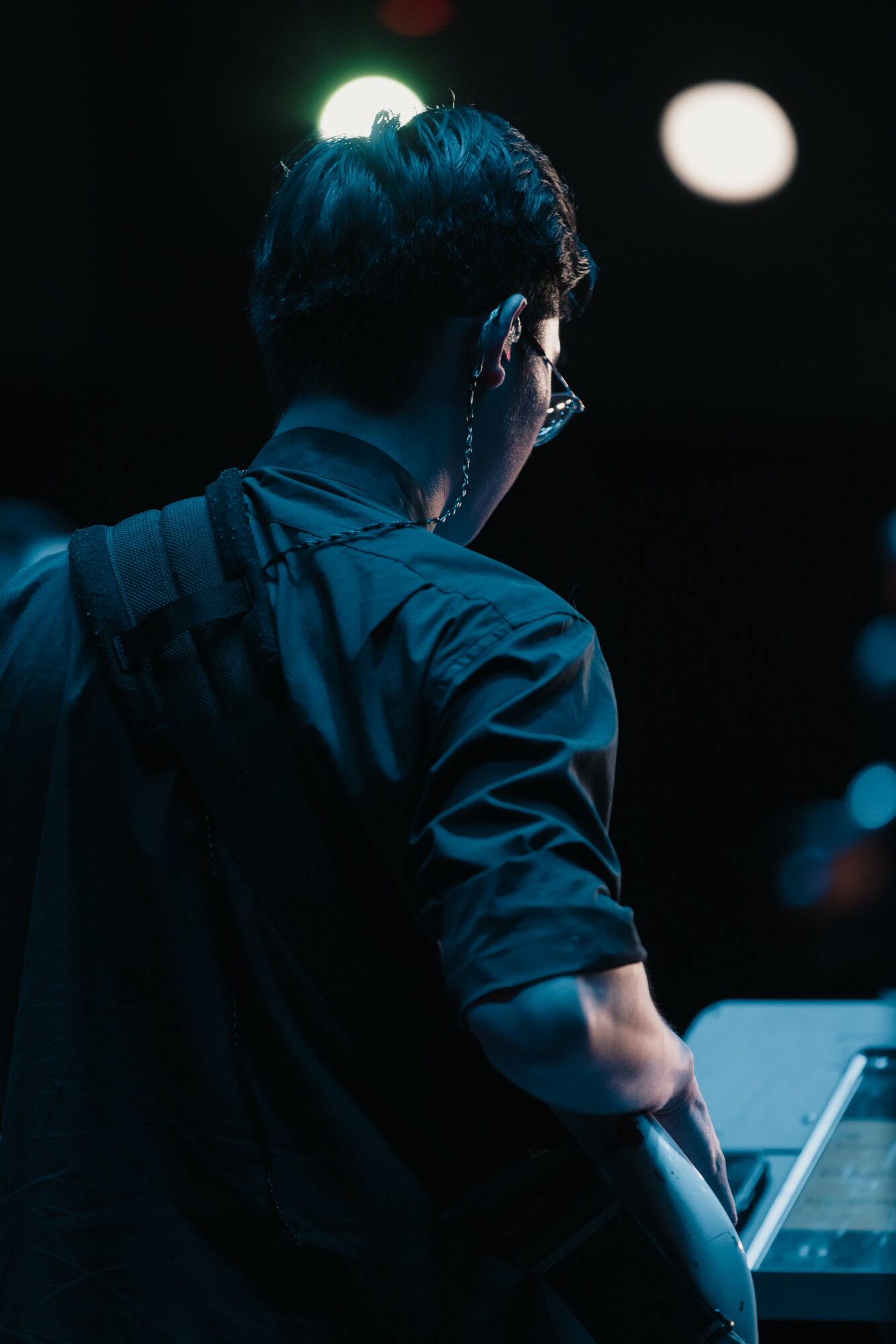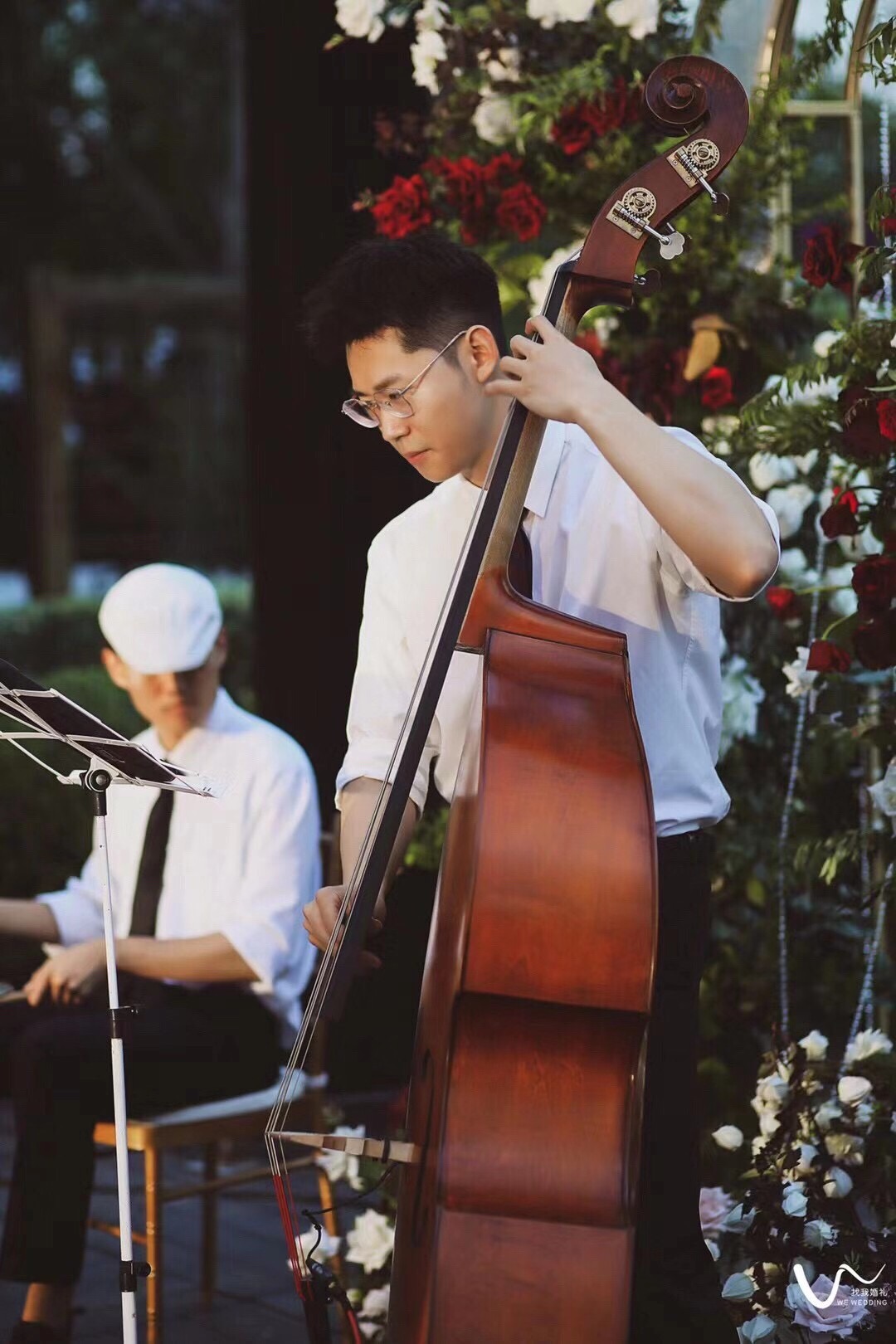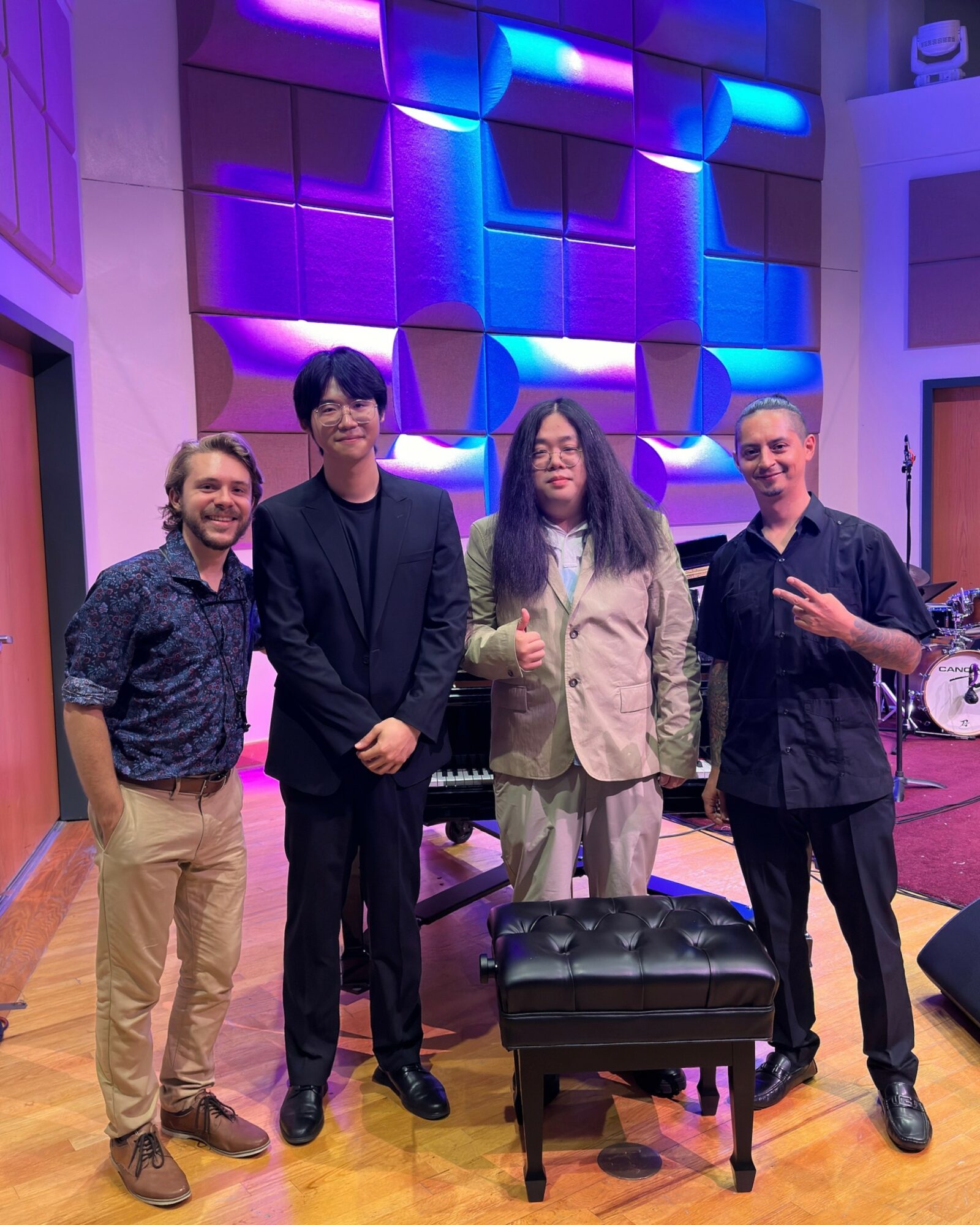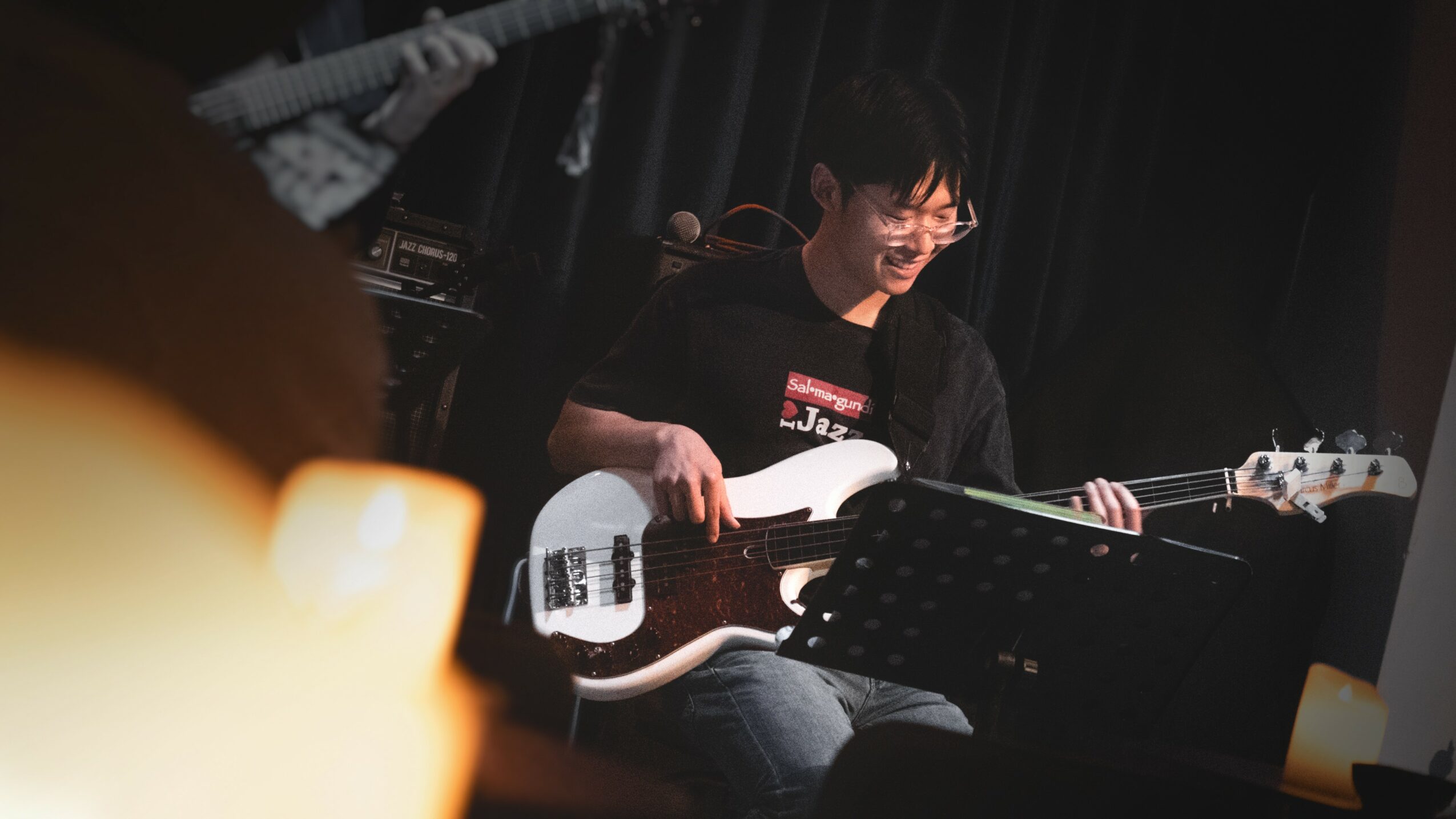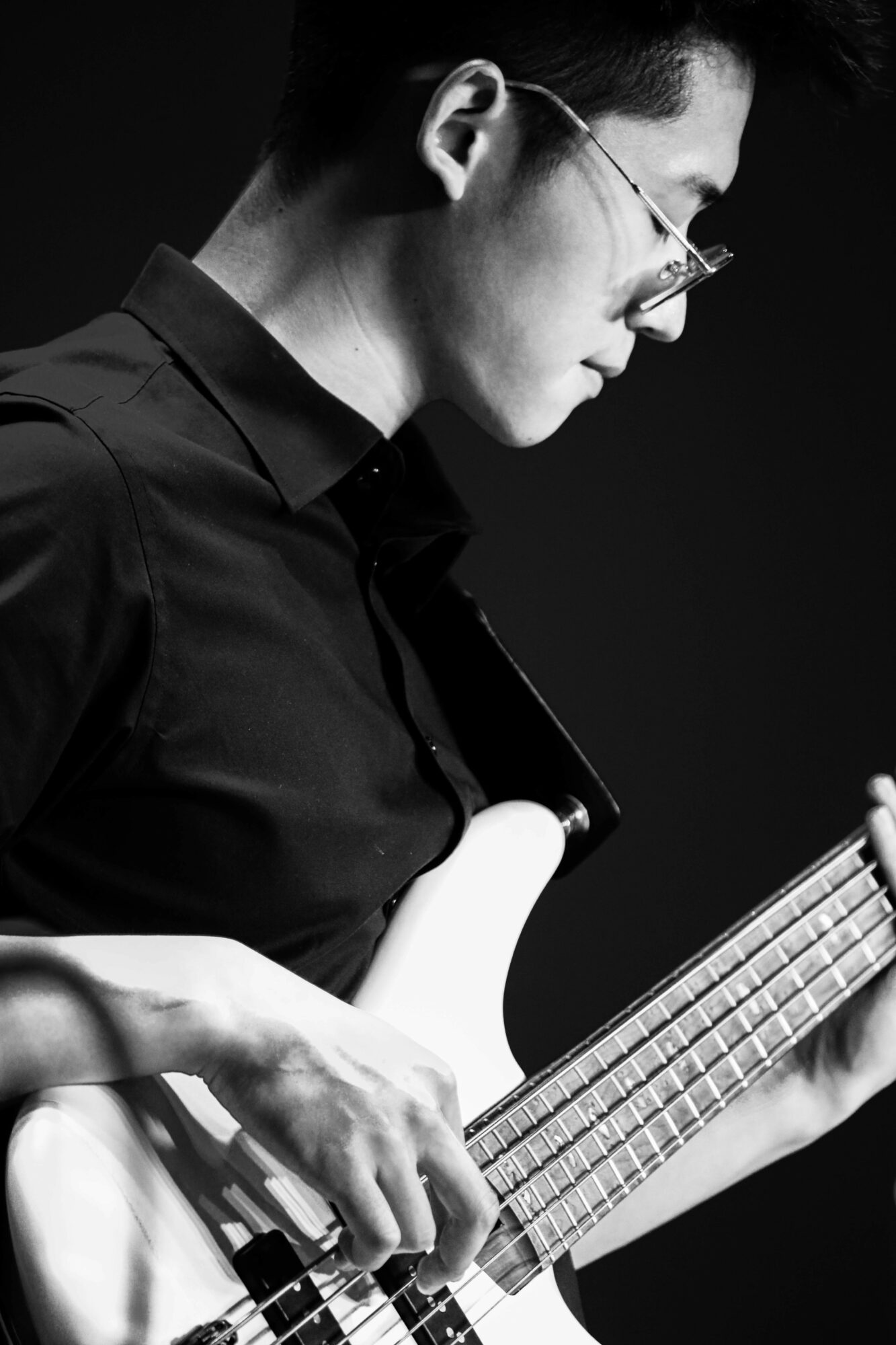

Today we’d like to introduce you to Tianyu Zhang.
Alright, so thank you so much for sharing your story and insight with our readers. To kick things off, can you tell us a bit about how you got started?
Music first came into my life when I was eight years old through piano lessons that my mother encouraged me to take. However, I soon stopped because it didn’t feel like my own passion. Everything changed in 2011 when I saw musicians improvising without sheet music at church. That moment inspired me to tell my mother, “I want to learn electric bass.” From that point on, I practiced with complete dedication. Although my parents hoped I would study chemistry, I chose to pursue music at the University of Virginia. There, playing in the New Music Ensemble helped me discover my love for improvisation. After completing my master’s degree in jazz studies at USC Thornton, where my bass instructor profoundly influenced my approach to composition and performance, I began connecting jazz with my Chinese musical background. Now, as a doctoral student at the Frost School of Music, I balance performing, teaching, and composing.
I’m sure it wasn’t obstacle-free, but would you say the journey has been fairly smooth so far?
My journey has been anything but smooth.Each breakthrough came only after overcoming significant obstacles. Growing up in Chengdu, China, I faced a fundamental challenge: jazz simply didn’t exist in mainstream culture. This created an educational void where I could only learn through scattered YouTube videos, developing flashy techniques like slapping while missing core jazz fundamentals.
The cultural gap became painfully apparent during my first jam session at UVA. When called to play “So What,” I didn’t understand what “tunes” were or how to navigate the form. The disappointed looks from fellow musicians crushed my confidence. Even after being accepted to USC’s prestigious jazz program, I struggled with composition – my first original piece left my classmates visibly confused.
Perhaps my most persistent challenge has been dealing with jazz conventions. As an electric bassist in an upright-dominated tradition, I’ve faced constant skepticism about my instrument choice. But through dedicated study of innovators like Steve Swallow, I’ve made process that honors jazz tradition while enjoying the sustain and attack of electric basses. These experiences now inform how I teach, helping students navigate both technical and cultural aspects of jazz.
Can you tell our readers more about what you do and what you think sets you apart from others?
I’m a jazz electric bassist and composer specializing in straight-eighth styles and odd meter compositions. While most jazz bassists play upright bass, I choose to specialize in electric bass because I believe it can express jazz ideas with equal depth and feeling. I study great players like Steve Swallow and Jeff Berlin. As a composer, I write music that blends jazz with other influences. My album “Seasons After” shows this approach, combining jazz with elements of Chinese popular music. What I value most is when musicians can take my compositions and make them their own while keeping the music’s original spirit.
Teaching has become an increasingly important part of my work. A particularly rewarding aspect of my work has been guiding students to earn scholarships and admissions to prestigious music programs. Several of my students have received substantial merit-based scholarships to attend institutions like Berklee College of Music, USC Thornton School of Music, and the Los Angeles College of Music. These achievements reflect our shared commitment to excellence and the rigorous preparation process we undertake together.
I am profoundly grateful for the extraordinary opportunities to perform and collaborate with Grammy-winning artists who have shaped my musical journey, including saxophonist Lauren Sevian, Latin jazz piano legend Michel Camilo, and my favorite musician of all time, the brilliant drummer Dafnis Prieto. These experiences fundamentally expanded my understanding of creative musicianship at the highest level.
I’m equally thankful for my endorsement partnership with Soloking Guitars, who are currently designing my signature electric bass model for production – a dream I never imagined possible when I first picked up the instrument.
I’m proud of participating in significant milestones for jazz in China, including performing at my hometown Chengdu’s first jazz festival and joining the country’s first government sponsored jazz big band. These experiences reflect my commitment to contributing to jazz’s growth in my home country.
Is there a quality that you most attribute to your success?
Relentless sight-reading practice. Since college, I’ve practiced reading daily—even just 10 minutes—and it’s opened 90% of my professional opportunities. Whether for festivals, recordings, or sessions, the ability to quickly interpret music has been indispensable. This discipline, more than any other skill, has defined my career.
Contact Info:
- Website: https://www.tianyubass.com/
- Instagram: https://www.instagram.com/tianyuzhangbass/
